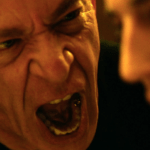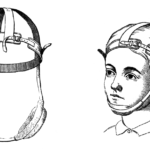
Whiplash Is a Terrible Movie
October 10, 2017
On Minimization as a Patriarchal Reflex
October 20, 2017Death is a singularity, but not all deaths are the same.
This summer marked the second time a friend of mine has died, suddenly and unnaturally.
This time it was a man, my age, with whom I shared so much that I walked around for weeks wondering whether I had suddenly died, or whether I was at the edge of it.
There was unfinished business, but not the type you’d have with a father or a son. Not the type that had built up over decades of microactions. It was the unfinished business of feeling that a part of yourself was now amputated, and couldn’t do its work. That first friend was hit and killed by a truck. But that’s not what happened this summer. There was no ultimate outside force involved. It was a godless death.
I don’t know much about grief. I’ve read about the stages and they sort of make sense. I do know the blankness of shock, and I feel it in my body as an amplification of the echo of every violent event. Its primary qualities are isolation and armouring. I know that I’m in shock because it feels impossible to connect. This is likely because my body has absorbed proof positive that connecting is dangerous.
This armour is different from my more fleeting patterns of dissociation. It gathers in like night and stays.
Surely there are universal aspects to grief, but they are mediated by the materials of a person’s resilience. How much money you have, whether you’re sick, the strength of your community, whether you suffer from racism. Moreover there are qualities to what I’m describing that I feel are heavily gendered. These are clear to me at the point at which that dangerous connection between myself and other men happens. Or doesn’t quite happen.
A few days after the death, I went to a gathering of people who knew and loved the deceased, and had other complicated feelings about him and about what happened. I knew a lot of people there, but not well. There was a Buddhist ritual and people sharing a single word about what they were feeling, and a general air of quiet repression that characterizes shock. Some people were able to cry, but I couldn’t. Some combination of my introversion plus the demands of expected behaviours shut me down further.
But the next day. I went to the gym for a handball game with the guy I play with. I’ll call him Handball Dave.
It’s safe to say that Handball Dave is the type of guy who couldn’t give two farts about Buddhism. This is a relief for me, I can tell you. He works as a security guard. One time he asked me what I did for a living and I told him. There was a pause and we both knew that question was a big mistake and we changed the subject.
He’s also the kind of guy who probably has a lot of experience with godless death.
I stood there at mid-court and said I had to cancel our next game to go out West for the funeral. I told him the bare bones of the story.
Dave looked at me for what seemed like an eternity. His face was a stone. He suddenly looked ancient.
He handed me the ball. “Your ball, your serve,” he said.
I almost lost it right there. In front of this guy, provoked by this guy who I don’t know from Adam, and yet he knew me in that moment, or at least he mirrored my own frozenness in such a way as made me feel how cold I was.
His way of expressing empathy was to not show a single lick of empathy. Not a flicker. He stayed in his armour, and let me stay in mine. Then he made a choice, because the clock was ticking, and we were standing on the court after all, and at some point we’d have to get on with it.
Despite all of the therapy I’ve done, all the communication skills I’ve worked at, all the feminism I’ve tried to absorb, I imagine there will always be a part of me that is hardwired to yearn for this connection/nonconnection through the stone-like quality of silent masculinity. I’m not saying this is good, and I’m fully aware of the price it exacts through repression and sublimation. That moment of mirrored frozenness carries a tension that will definitely discharge somewhere else, sideways and volatile.
But there’s something else to it, something austere, existentially honest. It bypasses the moment through pragmatism, but before it does, it lets the horror sit, unresolved. We look at each other through our blankness and perform for each other the mask of death. I’m looking at him, and he’s giving me exactly nothing, a perfect nothing, and his stoney face is like the face of my friend.
And that emptiness touches the most intimate nerve. I’m frozen, but there’s a vibration that rises up and wants to flow into that flat space.
It’s a good thing he handed me the ball, because if he hadn’t I would have had to restrain myself from collapsing into his embarrassed arms.
You can’t do the collapsing thing because of homophobia. Even though you know it would feel so good. To not only collapse but fall to the floor together and lay side by side, to hold and be held.
But even this taboo has its relentless poetry: I can’t embrace my dead friend, either.
There’s nothing to do but take the ball, and serve.
And to know that Handball Dave might read this one day and tell me I’m totally full of shit. And that’s okay.